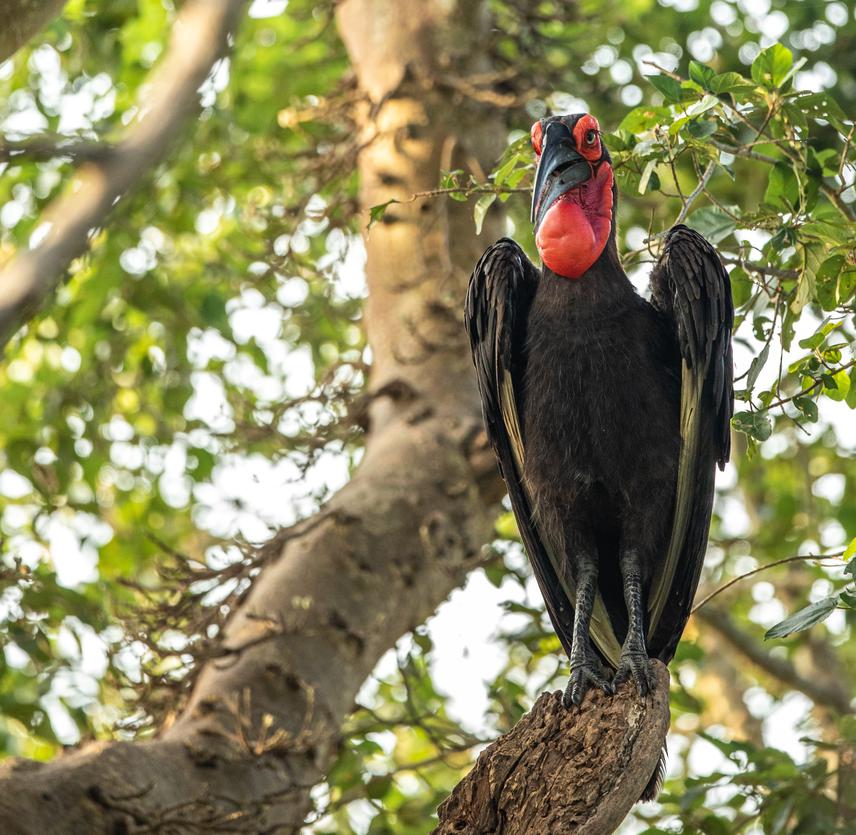Carrie Hickman
Other projects
23 Nov 2022
The Effects of High Temperatures on Behaviour, Reproduction and Nestling Physiology in the Southern Ground-Hornbill
Southern Ground-hornbills are a long-lived, large, cooperatively breeding bird species which are endangered in South Africa. Climate change may be a substantial risk to their continued survival and with temperatures predicted to increase in South Africa, this project aims to look at how the species will respond to this environmental change.
The APNR Ground-Hornbill project, run by The FitzPatrick Institute of African Ornithology, will investigate whether high ambient and nest temperatures lead to detriment sub-lethal effects in developing Southern Ground-Hornbill nestlings. To do this we will measure nestling growth, fledging size, and condition as well as telomere lengths (oxidative stress can cause DNA damage, shortening of telomeres, which can affect nestling growth and survival.) We will also use citizen science in this project by involving local rangers, guides, and the public in submitting photographs and videos of Ground-hornbills seen in the wild.

Adult bird in nest tree. © Kevin Maclaughlin.
The birds readily occupy artificial nests which have been installed by the project in The Associated Private Nature Reserves, an area comprised of 1800km2, for the past 20 years. This supplementation of artificial nests has significantly increased the population of Ground-hornbills in the area. However, there are indications that temperatures inside these artificial nests have greater fluctuations than those of natural cavities. Therefore, it is important that we look at what effects this may have on the nestling’s physiological condition and expected survival. This will allow us to determine whether mitigations such as providing better/more insulative nest boxes are necessary to help their breeding success and conservation of the species in the current climate crisis.
This has been recognised as a priority research area, as defined in the national Biodiversity Management Plan, and this work directly contributes to that research requirement. Our results will also provide a major contribution to the Species Risk Assessment Workshop being organised by the Mabula Ground Hornbill Project and facilitated by the IUCN Climate Change Specialist Group.